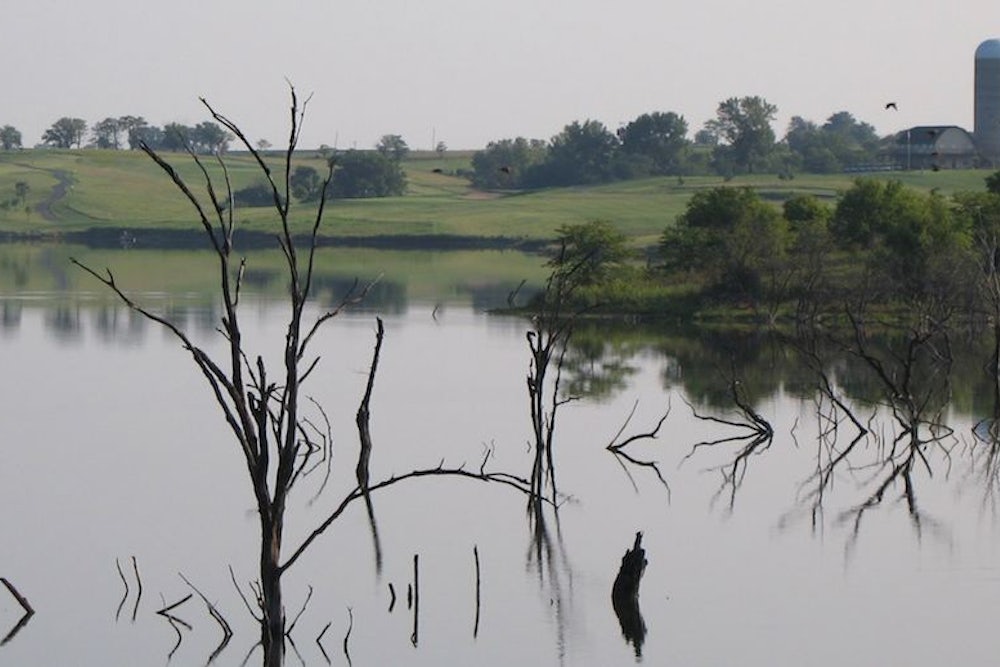Last Sunday, a New York Times reporter visited Maryville, Missouri to report on the existence of a grave threat to the town’s bucolic, Real-America essence: “Ever since The Kansas City Star ran a long article last Sunday raising new questions about the Nodaway County prosecutor’s decision to drop charges against a 17-year-old football player accused of sexually assaulting a 14-year-old girl, the simplicity of small-town life here has been complicated by a storm of negative attention.”
Leaving aside the dubious victimology—poor Maryville, battered so cruelly by the dark-hearted Kansas City media and their relentless “negative attention”—the paragraph also represents a great big logical problem for anyone who read the Star story, or even the 20-odd inches of stellar Times copy that followed the clunky lede: The whole point of a story of rape allegations dismissed by a political-prosecutorial complex intimately connected to an accused assaulter’s state-legislative relative is that… Maryville never featured any of that simplicity in the first place!
It’d be easy to beat up on a reporter who was tasked with following a competitor’s story and slipped into cliché. In fact, the reductio ad Rockwell is a common tic of journalistic visits to small towns, especially those put on the map by infamy. And it’s one that really ought to stop. Decades of culture wars have left us with a set of social rules where it is largely OK for rural types to slander their citified co-citizens (cf. Sarah Palin, small-town mayor and “Real America” stalwart) but where urbanites can’t dis the country folks without being deemed elitist (cf. Barack Obama, Chicagoite and “cling” apologizer).
Where that leaves us is with few ways of describing small-town life beyond patronizing clichés about their simplicity. But does anyone actually believe that residents of the hamlets and villages of the republic are simpler or cleaner or more honest than anyone else? Come to think of it, there’s a pretty good case for small towns being a lot more complicated than big cities. Consider Maryville again for a moment. There are two ways the town could have lived up to the Times’ rose-colored description of its status quo ante:
1. Beforehand, by not sexually assaulting ninth-graders, videotaping the incident, and leaving a victim asleep on her front lawn in freezing weather.
2. After the fact, by not ostracizing the victim’s siblings, firing her mom from her job, dropping the case inexplicably, and burning the family’s house down.
Now ask yourself whether either of these scenarios would be more or less likely in a metropolitan area. On option number one, let’s stipulate that violent, amoral, sexually predatory jocks—and all other archetypes of sociopath—are equally distributed throughout the country. But, once you move into the more populated counties, there are a lot of neighborhoods where you can’t just dump a too-drunk-to-walk person on the front stoop because someone might see you. Yes, there’s an upside to that density we frontier-craving Americans are supposed to abhor.
Likewise, on option number two, let’s again stipulate an equal distribution of those inclined to do bad things in order to help a friend or relative evade consequence for crimes. Metropolitan areas, though, are structured in ways that make it harder for the would-be criminality-abettors to misbehave. Turns out all that “close knit” small-town stuff turns out to kind of suck if you’re trying to get justice: When you’re so close-knit that your boss knows some of the families whose kids you’re trying to put in jail, and you just happen to get fired—that’s not a good thing. It’s so much more, uh, simple if the boss has no idea who your kid is, much less who the family of the guy accused of assaulting her is. Likewise, though it’s probably dumb to ever underestimate the ability of powerful people to get their way in any ZIP code, it’s a good bet that your average city or suburban cop or assistant district attorney is going to be a lot less impressed with the knowledge that a suspect’s grandfather was once a state rep.
Bottom line: I’d much sooner trust a place big enough to have professionals whose duties are governed by rules and regulations rather than personal ties. I know, I know: It’s that red tape that we urbanites are always pushing on our God-fearing Real-American brethren. I tend to think of the apparatus, instead, as the rules for a civilized society. But, of course, we can’t say that Maryville is a Hobbesian hellhole whose very structure and folkways enable lawlessness. That would be snobby! So instead, we are left with elegiac bunkum about simplicity interrupted.
Here’s an idea: If we must use clichés to describe small-towners, maybe let’s swap the current choice for one that also has deep roots in American culture. Anyone who has watched a western from the late 1950s onwards knows that there’s a pretty well-established archetype of the small town that is in fact a noxious theater of entrenched power and polite hypocrisies, one that only gets interrupted when a good-looking rebel decides he’s had enough. How about we treat that as the default mode of describing the Maryvilles of the world? Yes, it’s just as shallow and cheap as the other cliché. But, human nature being what it is, it has better odds of being right.
